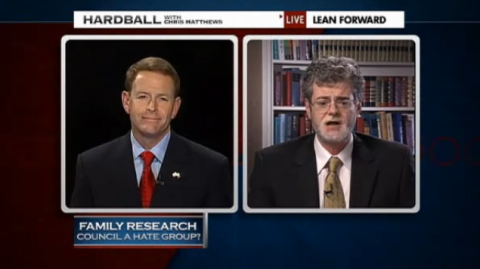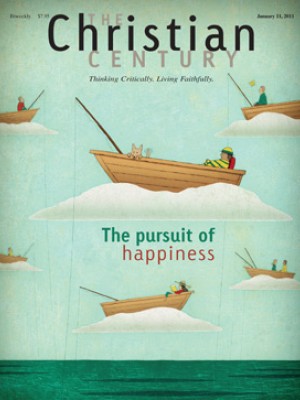Spreading lies

At first glance, it seems hyperbolic for the Southern Poverty Law Center to add the Family Research Council and other anti-gay-rights organizations to the list of hate groups it monitors. The label "hate group" evokes the disquieting fringe of virulent bigotry, not highly visible advocacy groups with large constituencies.
But not all hate comes from the fringe. And according to the SPLC—a top authority on hate groups—the term doesn't necessarily imply violence or illegal activity. Instead, the SPLC defines hate groups as those with "beliefs or practices that attack or malign an entire class of people, typically for their immutable characteristics."
Read our latest issue or browse back issues.
Do the FRC and the other antigay groups qualify? The SPLC makes a persuasive case that they do. An article in Intelligence Report, the organization's magazine, details how these groups trade in "demonizing propaganda" characterized by widely discredited junk science and "repeated, groundless name-calling." The FRC quickly responded by placing an ad—in the form of an open letter signed by more than two dozen top Republicans—accusing the SPLC of "trying to shut down informed discussion of policy issues."
The SPLC stresses that its objection to these groups is not that they view homosexuality as unbiblical and sinful. Nor is the SPLC opposed to informed discussion of public policy—quite the opposite. The problem is that these groups deliberately spread misinformation.
The Family Research Council has repeatedly argued that gay men are more likely than others to molest children. Bryan Fischer of the American Family Association has said that Hitler was gay and that homosexuality caused the Holocaust. To call such claims misinformed is being generous—they have been repeatedly and roundly debunked. Disseminating these claims doesn't promote discussion; it promotes prejudice and hatred.
Neither the Family Research Council nor the American Family Association condones criminal behavior. But by spreading falsehoods and propaganda, such groups lend ideas and credibility to more extremist elements. We live in a time when gays and lesbians are more likely to be victims of a violent hate crime than any other group—more than twice as likely as African Americans. The SPLC has worked tirelessly against hate crimes ever since the term was virtually synonymous with "crimes targeting black people." It makes sense that the SPLC is now targeting hate crimes against gays.
The SPLC has been clear and consistent as to what it means by hate group. Applying the term to high-profile antigay organizations isn't just politics. It's asserting that facts matter, that words have consequences and that hate is hate—regardless of how many people support it.






